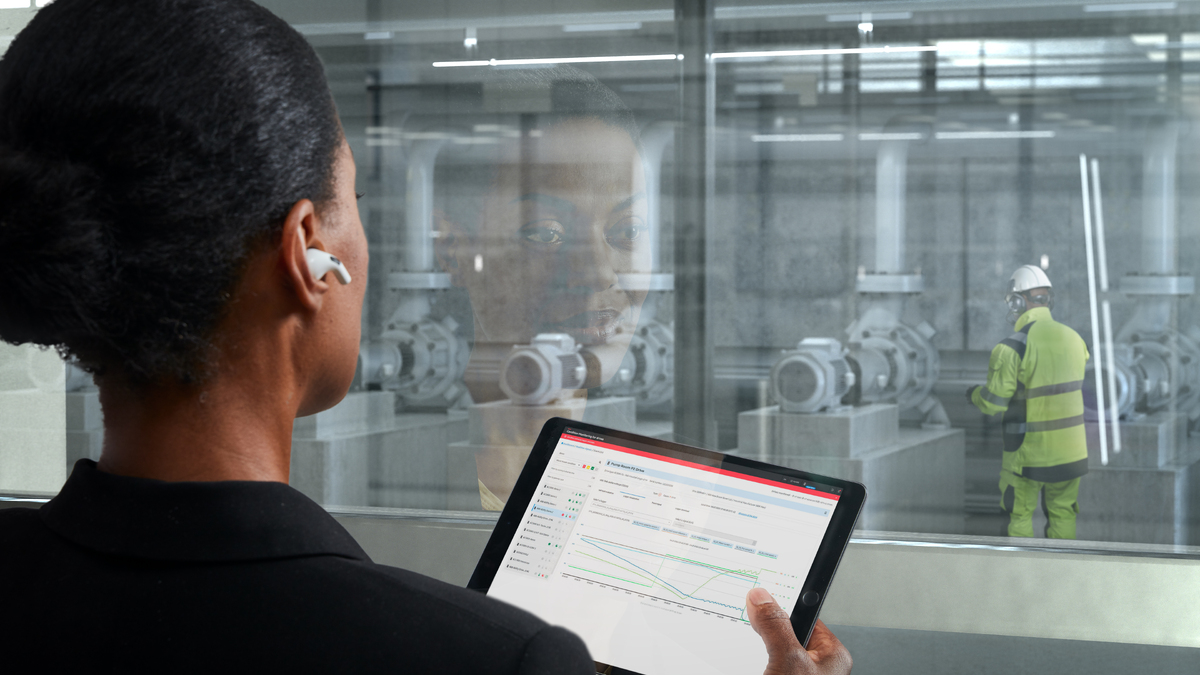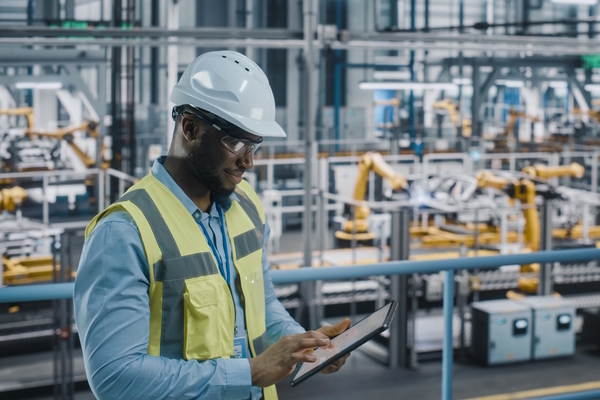Harnessing operational data for billions of better decisions – and a better world
Operational information from industries could be the key resource in addressing energy stability and climate change

With energy security making headlines in recent months, there is increased focus on ensuring sufficient supply at fair cost. At the same time, the urgency to limit global warming is as pressing as ever, with the world needing to halve its greenhouse gas emissions by 2030 to reach the Paris Agreement objectives.
So, as a society, it’s fair to say that we have our assignment – and the due date. But what does this then mean for industry?
The decisions we take in the short and long term will make all the difference in these endeavours. The good news is that digitalisation holds the potential to help us with both: to manage energy needs right now, and support the “greening” of our energy system for the 2030 timeline and beyond.
While industry is the largest consumer of natural resources and accounts for the lion’s share of global greenhouse gas emissions, there is no ignoring the fact that demand for energy and materials is only going to expand in step with the world’s population growth. At the same time, there is a need to reduce harmful emissions from human activity.
No serious plan to address climate change therefore can ignore industrial transformation. The world needs industry to step up to this challenge.
Fortunately, this is not a task wholly unfamiliar to managers who have spent their careers in the industrial world, where the need to transform has been perpetual. After several previous industrial revolutions – steam power, electrification and then automation – we now find ourselves in the midst of a fourth industrial revolution that builds on these previous waves of change, this time focused on digitalisation.
A recent ABB survey of executives revealed that 93 per cent of leaders globally view digitalisation and sustainability as “intrinsically linked”. This tells us we must build on this latest industrial revolution and embrace digital technologies to reach sustainability goals, not least of which is the imperative to rein in emissions.
Successful industrial transformation that reduces emissions will come down to a central matter: harnessing data to empower better decision-making at scale. The untapped information industrial companies have about their operations is our most under-exploited resource in addressing energy stability and climate change.
Something else has become clear: we don’t lack for data. The industrial world is in fact overflowing with data, whether from operations technology (OT), information technology (IT) systems or elsewhere. From ABB’s work with industrial customers around the world we know that only 20 per cent of the data produced is being applied, and only a fraction of that is being analysed.
Industry needs to harness data in support of sustainability, not just by collecting more of it but also by aggregating it, securing it, contextualising it, making sense of it and using it to take meaningful action. Leveraging operational data is the key to increasing the energy efficiency of machines (for example, pumps, turbines, fans, belts, vehicles), optimising the power mix, improving asset performance and life spans and reducing waste.
The term “industry” may sound like an abstraction, but it represents millions of people who work in sectors such as oil and gas, manufacturing, utilities, mining, transportation and construction. We need to empower these people – the facilities managers, equipment operators, technicians, frontline workers – to make better decisions at every turn. It’s not about retraining every employee to be a data scientist, but rather making data-driven decisions a feature of everyone’s job, from the boardroom to the plant floor. This means putting technologies in the hands of workers throughout the business, ensuring that decisions are supported by data that is current, trustworthy, relevant and, especially, consumable.
To achieve greater data utilisation, companies are turning to new approaches that prioritise simplicity and ease of use. This includes greater reliance on video, collaboration software, low-code and no-code programming tools, augmented reality, data visualisation, simulations and digital twins, “explainable” artificial intelligence applications and much more.
Connecting infrastructure with sensors is one necessary step, but it alone is not enough to support industrial transformation. Enabling workers to make use of the intelligence these sensors can provide is what will deliver value.
Automation isn’t incompatible with empowering people; it’s a highly efficient way of embedding good decisions in the most complex operations. Automation takes care of closed-loop processes where machines can optimise operations, but there is an equal opportunity to empower every member of the industrial workforce to put data to good use.
Doing so throughout industry means making billions of better decisions. This is equally vital to our short-term concerns regarding energy security as it is in meeting our long-term climate goals.
The countless small decisions that go into how we run industrial operations will play a huge role in determining our path toward a sustainable energy future – and in the experience of living on this planet – in the years ahead.
To learn more about how ABB is empowering safer, smarter and more sustainable operations, click here
By Peter Terwiesch, President, Process Automation, ABB

Peter Terwiesch, President, Process Automation at ABB, is a member of the company’s Group Executive Committee. Since joining ABB in 1994, he has held a number of senior roles, including chief technology officer and head of ABB’s Central Europe region. Mr. Terwiesch sits on the board of directors of both Metall Zug AG and Hilti Group.

Business Reporter Team
Most Viewed
23-29 Hendon Lane, London, N3 1RT
23-29 Hendon Lane, London, N3 1RT
020 8349 4363
© 2024, Lyonsdown Limited. Business Reporter® is a registered trademark of Lyonsdown Ltd. VAT registration number: 830519543
Join the Business Reporter community today and get access to all our newsletters, and our full library of talk show episodes
Join the Business Reporter community today and get access to all our newsletters, and our full library of talk show episodes





